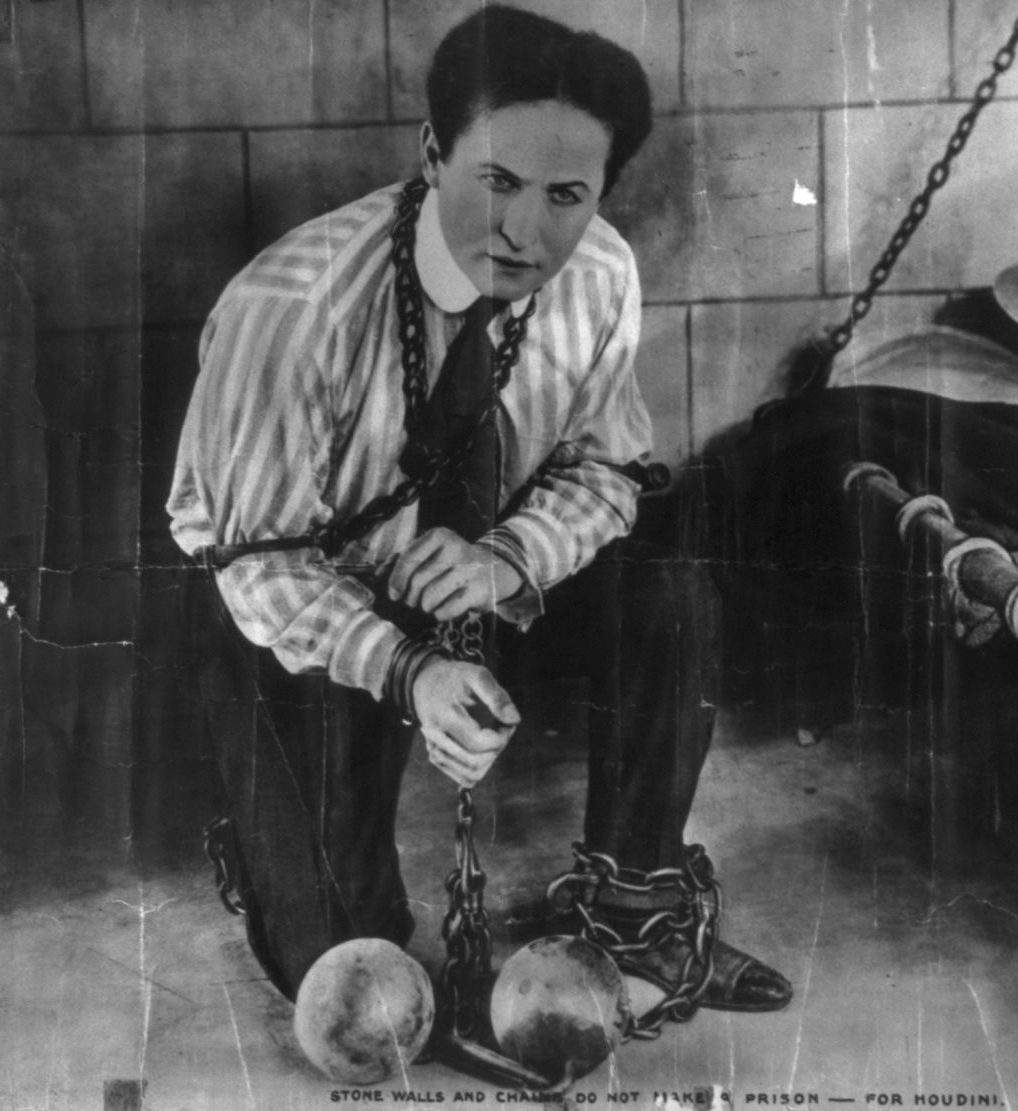Harry Houdini – one of the most famous Hungarians
Harry Houdini was born under the name Erik Weisz on 24 March 1874 in Budapest. He was an American illusionist and magician with Hungarian origins, who is often considered as the greatest escape artist of all time. G. B. Shaw claimed that the three most often mentioned names in the world are of Jesus, Sherlock Holmes and Houdini.
He was born in District VII in 10th Csengery Street, as the son of a rabbi with many children. It is frequently told that he stated that he was born in the United States, but this is probably just one of the many legends surrounding his name. However, it is a fact that his family moved to Appleton when he was young, proceeding later to New York.
During his teenage years, he worked as newsboy and shoe polisher. He fled from home when he was 12 years old and joined a travelling circus. His career there did not last long because he had to return home to help his parents.
He trained himself from a very young age: he jogged, swam, boxed, developing an extremely tough condition that was quite useful for his tricks in the future.
Then he realized his opportunities as a magician. He began with card tricks which earned him the nickname the King of Cards, which turned into the King of Handcuffs later. According to 24.hu, he met Martin Beck in 1899 who advised him to focus on escape performances. He hired him and took him on a tour around Europe. He gained Ł300 a week for regularly freeing himself from the handcuffs of Scotland Yard. As he was touring in Europe, he asked for a pair of handcuffs, locks, even prison cells from each local police for his tricks. He was often stripped bare and searched through, but he still managed to free himself every time.
Houdini could get out from everything from coffins through cupboards to glass boxes filled with water.
He could dig himself out from earthed mounds. He once freed himself from the stomach of a dead whale on the shore.
Besides being an acclaimed magician, he also made five films between 1916 and 1923.
He became successful because of his creativity, his physical strength, his flexible limbs and his knowledge of locks and knots. He could hold his breath for four minutes — which is the double of an average person’s capacity — so he had enough time to unlock himself underwater or underground. He designed almost all of his tricks, and only his four assistants were aware of his secrets. Most of his tricks are still mysteries today.
The American Society of Magicians elected him as their chairman nine times.
He was one of the first and few Hungarians who received a star on Hollywood’s Walk of Fame.
During his career, Houdini often bragged about his abs and their toughness. According to the most likely version, his death was caused by his vanity: he bet one of his boxer friends that he can stand the hardest punch in the stomach. However, the blow injured his appendix, and he died of the infection in a couple of days. According to Urban Legends, many medical experts doubt this theory today. They claim that Houdini, who was famous for his fear of hospitals, already had severe appendicitis and he was to die anyway soon. The punch just triggered the pain.
There are two museums in the USA dedicated to Houdini’s memory: One in Appleton and one in New York, the venues of his youth. Another world-famous Hungarian escape artist David Merlini also opened an exhibition in Buda Castle named House of Houdini. It is a collection of the late magician’s relics. As Cultura.hu reported, the exhibition includes some of his handcuffs, his letters, as well as the props of his biographical movie Houdini!, which was shot in Hungary with Adrien Brody in the title role.
Source: 24.hu, Cultura.hu, Urban Legends, Daily News Hungary
please make a donation here
Hot news
What happened today in Hungary? — 24 April, 2024
Hungarian minister Nagy: Brussels keeps the agriculture crisis going
Primark to open its first store in Hungary soon!
Orbán promises everyone profession and decent pay
Wolt in Hungary exposed: Is the food delivery sector really filled with guest workers?
Ruling Fidesz is afraid of a migration wave towards Europe


